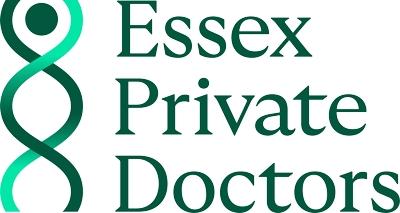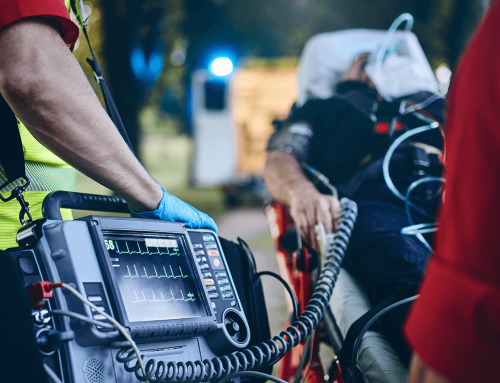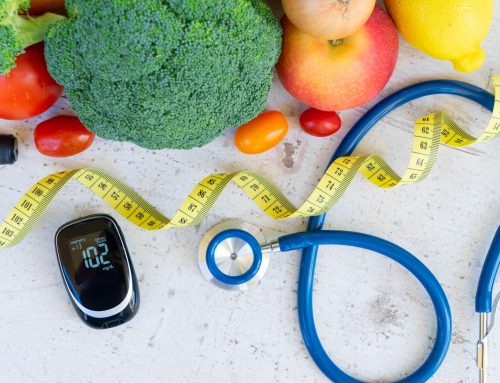Why You Shouldn’t Wait Until You’re Ill to See Your GP
When was the last time you visited your Doctor for a routine check-up? If the answer is “only when I feel unwell,” you’re not alone. Many people manage their health like this, but it’s time for a mindset shift. You wouldn’t wait until your car breaks down to take it to the garage— you take it for regular services to ensure it’s running smoothly. The same principle applies to your health: prevention is better than cure.
The Value of Regular Health Checks
As a private GP, I think it’s really important to attend regular health checks, particularly if you’re on long-term medications or have a family history of medical conditions. Six-monthly reviews allow us to ensure that treatments are working well, highlight potential issues early, and keep you in tip-top condition. These proactive steps can make all the difference in catching and treating illnesses before they become serious.
Here are just a few examples of what we can pick up during routine health checks:
- Prostate Health and PSA Monitoring
For men, particularly as they age, monitoring prostate-specific antigen (PSA) levels is an important way to spot the signs of prostate trouble.
PSA levels naturally increase with age, but the velocity or rate of change is just as important as the number itself. Even within the “normal” range, a sudden increase in PSA can indicate early prostate cancer. By checking this regularly, we can identify patterns, act promptly, and potentially save lives.
This is particularly critical if you have a family history of prostate cancer. Early detection makes treatment more effective and outcomes significantly better.
- High Blood Pressure: The Silent Risk
Hypertension (high blood pressure) is often called the “silent killer” because it rarely has symptoms—until something serious happens, like a heart attack or stroke. Regular health checks allow us to monitor your blood pressure, particularly if you have a family history of heart disease or stroke. Identifying hypertension early means we can help you take control of your health through lifestyle changes or medication to reduce your risk.
High blood pressure rarely causes symptoms, so it’s vital we spot it and treat it before it causes a life-threatening or irreversible condition.
- Cholesterol: Small Changes, Big Impact
High cholesterol is another major risk factor for heart disease, especially as you get older. Like high blood pressure, high cholesterol rarely causes symptoms, and I regularly pick up very high cholesterol levels in my patients during health checks.
Lifestyle tweaks—including more oily fish, reducing saturated fats, and increasing exercise—can significantly lower cholesterol. The earlier you act, the less likely you are to need medications like statins.
- Blood Sugar and Diabetes
Routine blood sugar tests during health checks have helped us identify pre-diabetes and diabetes in patients who felt otherwise well. Pre-diabetes is when your blood sugar levels are higher than normal but not yet in the diabetic range. This is a critical window for action—by adjusting your diet, increasing exercise, and adopting a healthier lifestyle, you can often prevent progression to full-blown diabetes.
Diabetes can cause irreversible damage to blood vessels, nerves, and organs if left untreated. Early detection is key to preventing complications.
If you have a family history of diabetes, it’s even more important to have regular health checks.
- Blood in the Urine: Small Signs, Big Importance
A simple urine test during a health check can detect microscopic amounts of blood—far too small to see with the naked eye. While it might not sound significant, blood in the urine can sometimes indicate serious conditions such as kidney cancer.
- Skin Cancer Checks
It’s not uncommon for us to spot skin cancers during routine examinations. Areas like your back are often difficult to monitor yourself, and we’ve successfully identified and treated potentially deadly skin cancer (melanoma) in patients who had no idea anything was wrong.
- Bowel Cancer Screening
Routine health checks can also include bowel cancer screening tests, which can detect tiny amounts of blood in stool samples long before symptoms appear. Catching bowel cancer early is critical to survival, and I recommend screening for bowel cancer for all my patients over 50.
- Thyroid Problems and Vitamin Deficiencies
If you feel constantly tired, don’t assume it’s just a “busy lifestyle” taking its toll. Persistent fatigue can indicate underlying conditions such as:
- Thyroid dysfunction (underactive or overactive thyroid)
- Anaemia (low iron levels)
- Vitamin deficiencies (e.g., B12, folate, vitamin D, or calcium)
These issues are often easily treatable, but they need to be identified first. Regular checks allow us to pinpoint the cause of your fatigue and help you get back to feeling like yourself.
Stress and lifestyle factors can also contribute to fatigue. A health check gives us the opportunity to discuss stress management and help you create healthier routines for a happier, more balanced life.
Taking Control of Your Health
Regular health checks are not just about finding problems; they’re about staying one step ahead. Many conditions—like high blood pressure, diabetes, and high cholesterol—can be managed effectively when caught early. They give us time to implement small, manageable changes that have a big impact on your long-term health.
At Essex Private Doctors, we want our patients to feel comfortable approaching us at any time—not just when they’re sick. Your health is your greatest asset, and regular check-ups are the best way to protect it.
So, don’t wait until you feel unwell. Schedule a health check today and invest in a healthier, happier future.
If you’re on regular medications or have concerns about your family history, BOOK AN APPOINTMENT with us to ensure everything is on track.






